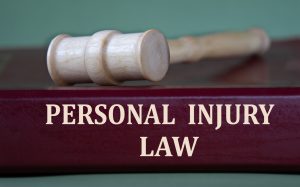The immediate aftermath of a car accident isn’t always plain sailing. You're dazed amid the wreckage, struggling to grasp the situation. As you come to terms with your injuries, thoughts of legal battles and insurance claims start to flood in. The confusion can be as overwhelming as the physical pain you're experiencing.
Victims often face not just the physical trauma of injuries but also financial burdens. Medical bills pile up, income may be lost, and the stress of handling insurance claims looms large. These challenges can make the post-accident period incredibly difficult.
In the sections that follow, you'll find essential insights into your legal rights, navigating the complexities of insurance, and how to secure the compensation you deserve. This guide aims to arm you with knowledge to tackle these hurdles head-on.
Understanding Common Car Accident Injuries
Car accidents can result in a variety of injuries. Minor ones like bruises heal quickly, but more severe injuries require urgent care. Whiplash, fractures, head injuries, severe burns, neck injuries, chest injuries, internal injuries, spinal cord injuries, and traumatic brain injuries are among the severe types that need immediate medical attention. Each injury varies in impact and recovery time.
The severity of these common injuries impacts your legal claims significantly. Minor injuries might result in smaller compensation compared to severe injuries, which can lead to larger settlements. This is due to the higher medical costs, more advanced medical care, longer recovery periods, chronic pain and potential long-term effects on your health and ability to work.
It's crucial to understand these differences as they directly influence the medical treatment and legal approach you should take after an accident. Seeking legal help after accident situations is essential to navigate the complexities of your rights and compensation effectively. Understanding when and how to obtain legal assistance can be a critical factor in the outcome of your claim.
Navigating the Insurance Maze
Dealing with insurance after a car accident involves several steps. First, you'll need to report the accident to both your insurer and the at-fault party's provider. This step is crucial for initiating the claim process.
However, navigating this process can be tricky. Insurance adjusters often aim to settle claims quickly and inexpensively. This might lead to offers that don't fully cover all your expenses or losses. It's important to communicate effectively and assertively with adjusters to advocate for fair treatment.
Here are some tips: always document your communications, provide complete and accurate information about the accident and your injuries, and don't rush into accepting the first settlement offer. These steps will help ensure you receive fair compensation.
Your Legal Rights as a Car Accident Victim
As a car accident victim, you have rights that entitle you to compensation for damages and injuries. These rights vary by state, so it’s vital to understand the specific laws and regulations in your area.
One key legal concept in traffic accident claims is negligence. If another party failed to act with reasonable care and caused the automobile accident, they are considered negligent. Proving this is crucial for your claim’s success.
Understanding these laws and proving negligence can greatly influence the outcome of your claim. It ensures that you receive compensation that accurately reflects your losses and injuries.

When to Consult a Car Accident Lawyer
There are several situations where consulting a personal injury attorney is crucial. If you sustain severe physical injuries, face disputed liability, or receive unsatisfactory insurance settlement offers, a lawyer can provide the necessary guidance and support.
Choosing the right lawyer is just as important as deciding to hire one. Look for a lawyer with deep expertise in personal injury cases and a strong track record of success. They should have experience dealing with similar scenarios to yours.
A skilled lawyer will navigate legal complexities and advocate effectively on your behalf. This ensures you receive the compensation you deserve depending on the severity of injuries and losses.
Steps to Take Immediately After an Accident
Right after a vehicle crash, taking the right steps is crucial for your physical and mental health and any future legal claims. First, ensure you and others are safe. Then, seek medical attention, regardless of the injury severity. This not only ensures your well-being but also provides medical records that serve as evidence.
Next, gather evidence at the scene. Take photos of the vehicles, road conditions, and any visible vehicle-related injuries. Collect contact information from witnesses. This documentation is invaluable for your legal case.
Lastly, report the accident to the police and your insurance company. Official reports and claims are foundational in building a strong legal case.
Understanding Settlements and Legal Proceedings
The journey from filing a claim to reaching a settlement or going to court can be complex. Initially, you file a claim with the relevant insurance companies, which includes detailing the motor vehicle accident injuries. This starts the negotiation phase, where settlement offers are made and discussed.
Expect this process to take several weeks to months, depending on the complexity of your case. Interaction with legal professionals will be frequent during this period, as they guide you through negotiations and legal filings.
If a settlement isn't reached, your case may go to court, extending the timeline. Be prepared for either outcome, and trust your legal team to advocate for the best possible resolution.
Conclusion
Consider how prepared you are if you ever become a traffic victim. Understanding your legal rights is crucial, not only for immediate recovery but also for securing fair compensation. Reflect on how this knowledge could significantly influence your ability to navigate the aftermath of an accident.
Proactively learning about your rights as a car accident victim is empowering. Take the initiative to understand more about the legal landscape, which will put you in a better position to handle the complexities of insurance and legal claims should the need arise.





















